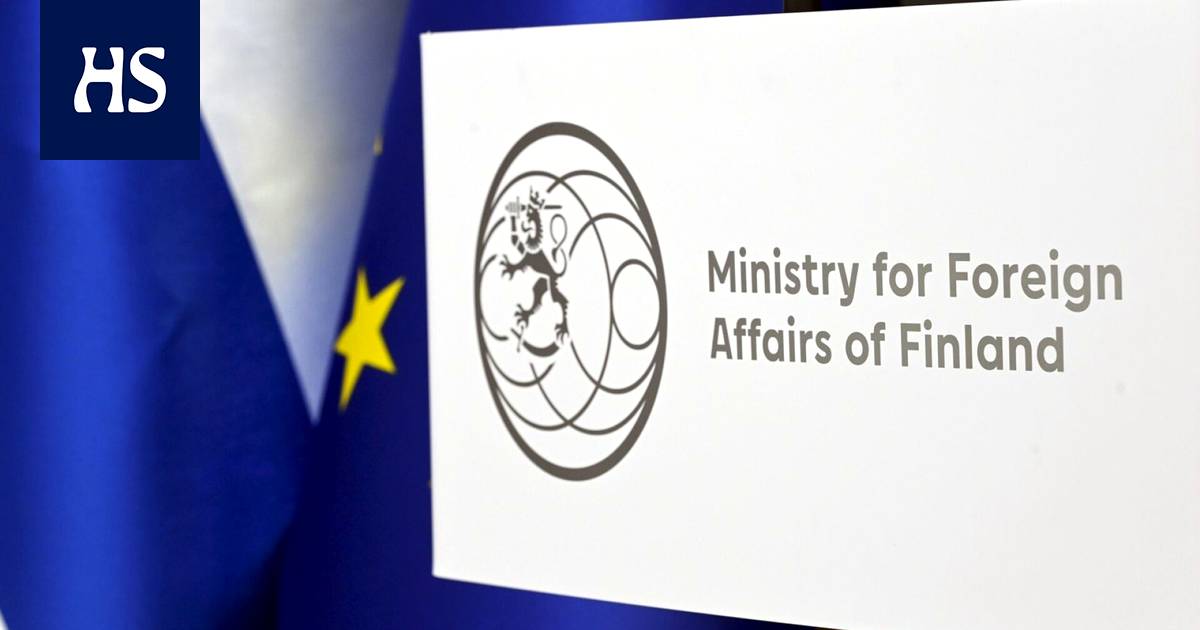The Foreign Ministry’s legal chief considers it possible that Russia will protest Finland’s application for NATO membership, citing international agreements.
State Department has submitted in advance to the Defense Alliance NATO international agreements binding on Finland, which may be relevant when considering Finland’s membership.
The agreements concern, among other things, Åland’s demilitarized status and Finland’s relations with neighboring Russia.
Finland however, binding obligations are not considered an obstacle to the submission of an application for NATO membership by the Ministry of Foreign Affairs. This is the assessment of the Chief Justice Kaija Suvanto from the Ministry of Foreign Affairs, and the same is stated in a report published by the Government on Sunday.
“None of our existing obligations require termination or modification [Natoon] due to accession, ”Suvanto tells STT.
However, he considers it possible that Russia will also object to Finland’s membership in NATO along diplomatic routes. Representatives of the Russian administration have repeatedly stated that Russia does not sympathize with Finland’s and Sweden’s possible NATO membership.
“It is possible that Russia will express its position by note or orally and consider that there is some violation of the agreement,” Suvanto said.
He said it would ultimately be up to politicians to respond to such an objection.
Finland has committed itself to a number of international agreements. In terms of relations with Russia, the NATO process has assessed three security-relevant entities: the 1992 state agreement between Finland and Russia, the 1947 Paris peace agreement and the agreements on the demilitarization of Åland.
In 1992, Finland and Russia signed an agreement on neighborly relations when the YYA agreement expired after the break-up of the Soviet Union.
In the contract Russia and Finland have agreed to refrain from “threatening or using force against the other party’s territorial integrity or political independence.”
From time to time, it has come to light in public whether this agreement could make it more difficult for Finland to join NATO. The Foreign Ministry has now considered that there is no obstacle to the agreement.
“The basic premise is that NATO is a defense alliance whose main task is to ensure the security of its member states through political and military means. NATO’s activities are not directed against any state,” says Chief Justice Suvanto.
He also adds that other NATO countries also have bilateral agreements with Russia which are still in force. He mentions Poland and Germany.
“To my recollection, Poland has quite identical provisions in the agreement as Finland.”
The 1992 treaty is valid for five years at a time, and its current term expires at the end of July, according to Chief Justice Suvanto. The termination of the agreement should be announced a year in advance, and neither Finland nor Russia has done so. Therefore, it will remain in force at least until 2027.
Another The 1947 Paris Peace Treaty, which sealed the peace of World War II, is still in force, but Finland has seceded from part of the treaty. President Mauno Koiviston Under the leadership of Finland, Finland withdrew from the military restrictions clauses in the agreement known as “Paxina” when Germany was reunited in 1990.
Chief Justice Suvanto estimated that the military restrictions in the Paris Peace Agreement were not intended to prevent countries from defending their own territories if necessary.
“The purpose of the military provisions of the Paris Peace Accords was to eliminate the offensive potential of certain states.”
International Professor Emeritus of Law Martti Koskenniemi notes that the withdrawal complies with international contract law, as Finland informs the Soviet Union and Britain of the withdrawal, ie the other parties to the agreement.
“It was an opportunity for other parties to react. When they didn’t react or reacted positively, they did [sotilasmääräykset] became insignificant. “
Finland still bound by the agreements on the self-governing territory of the demilitarized Åland Islands.
In 1921, under the leadership of the League of Nations, the self-government of Åland was strengthened, as was the demilitarization and neutralization of the province that had already taken place. Finland ratified the agreement a year later.
Despite demilitarization, the agreement obliges Finland to defend the island province if it were attacked.
In 1940 Finland and the Soviet Union sign an agreement allowing Russia to control the demilitarization of Åland. In practice, this is supervised by the Russian Consulate in Mariehamn.
Could there be a Russian consulate in Finland as a NATO state that inquires about military activity in Åland?
According to the Ministry for Foreign Affairs’ Suvanto, there is no problem from Finland’s point of view if the consulate fulfills the function for which it exists. If it turned out that the consulate would be used for other purposes, Finland could react.
He also points out that the treaty ratified in 1922 obliges Finland to defend Åland, but the other parties to the treaty undertake to assist Finland if necessary.
Agreement concluded in the 1920s by Germany, Denmark, Estonia, Finland, Sweden, Britain, Italy, Latvia and Poland. Of these countries, only Finland and Sweden are currently not members of NATO.
According to the Ministry for Foreign Affairs, so far NATO and its member states have not commented on the agreements that are binding on Finland.
“I understand that we have been satisfied with the material that has been submitted. In the discussions, things will be reviewed as necessary if questions arise,” Suvanto says.
Professor of International Law Outi Korhonen However, the University of Turku estimates that Finland’s contractual obligations can still be taken into account in membership negotiations.
“We weigh the benefits or harms of them to NATO,” he says.
Professor Emeritus Koskenniemi, on the other hand, points out that so far no claim has been seriously made that Finland’s current obligations would be in conflict with possible NATO treaty obligations.
#NATO #Finland #state #treaties #concluded #obstacle #NATO #membership








/s3/static.nrc.nl/wp-content/uploads/2024/04/web-1304binwilhelm.jpg)
